CYBR International Malware Information Sharing Platform (MISP)
The MISP is a threat intelligence aggregator that updates the community about evolving threats and vulnerabilities. The MISP may be imported as a threat intelligence data feed into existing cyber security threat analysis and reporting solutions.
Sample stream shown below; inquire for live feed subscription.
| DataType | ProblemTypes | Impact | Publish Date | |
|---|---|---|---|---|
|
| CVE | CWE-434 | NETWORK: LOW | 2023-11-14T22:38:00+00:00 |
| CVE | CWE-79 | NETWORK: LOW | 2023-11-14T22:34:00+00:00 | |
| CVE | CWE-89 | NETWORK: LOW | 2023-11-14T22:34:00+00:00 | |
| CVE | CWE-79 | NETWORK: LOW | 2023-11-14T22:32:00+00:00 | |
| CVE | CWE-89 | NETWORK: LOW | 2023-11-14T22:32:00+00:00 | |
| CVE | CWE-89 | NETWORK: LOW | 2023-11-14T22:28:00+00:00 | |
| CVE | CWE-79 | NETWORK: LOW | 2023-11-14T22:28:00+00:00 | |
| CVE | CWE-89 | NETWORK: LOW | 2023-11-14T22:28:00+00:00 | |
| CVE | CWE-89 | NETWORK: LOW | 2023-11-14T22:28:00+00:00 | |
| CVE | CWE-89 | NETWORK: LOW | 2023-11-14T22:21:00+00:00 | |
| CVE | CWE-79 | NETWORK: LOW | 2023-11-14T22:21:00+00:00 | |
| CVE | LOW | 2023-11-14T22:15:00+00:00 | ||
| CVE | LOW | 2023-11-14T22:15:00+00:00 | ||
| CVE | LOW | 2023-11-14T22:15:00+00:00 | ||
| CVE | LOW | 2023-11-14T22:15:00+00:00 | ||
| CVE | LOW | 2023-11-14T22:15:00+00:00 | ||
| CVE | LOW | 2023-11-14T22:15:00+00:00 | ||
| CVE | LOW | 2023-11-14T22:15:00+00:00 | ||
| CVE | LOW | 2023-11-14T22:15:00+00:00 | ||
| CVE | LOW | 2023-11-14T22:15:00+00:00 | ||
| CVE | LOW | 2023-11-14T22:15:00+00:00 | ||
| CVE | LOW | 2023-11-14T22:15:00+00:00 | ||
| CVE | LOW | 2023-11-14T22:15:00+00:00 | ||
| CVE | LOW | 2023-11-14T22:15:00+00:00 | ||
| CVE | LOW | 2023-11-14T22:15:00+00:00 | ||
| CVE | LOW | 2023-11-14T22:15:00+00:00 | ||
| CVE | LOW | 2023-11-14T22:15:00+00:00 | ||
| CVE | LOW | 2023-11-14T22:15:00+00:00 | ||
| CVE | LOW | 2023-11-14T22:15:00+00:00 | ||
| CVE | LOW | 2023-11-14T22:15:00+00:00 | ||
| CVE | LOW | 2023-11-14T22:15:00+00:00 | ||
| CVE | LOW | 2023-11-14T22:15:00+00:00 | ||
| CVE | CWE-79 | NETWORK: LOW | 2023-11-14T22:15:00+00:00 | |
| CVE | LOW | 2023-11-14T22:15:00+00:00 | ||
| CVE | LOW | 2023-11-14T22:15:00+00:00 | ||
| CVE | LOW | 2023-11-14T22:15:00+00:00 | ||
| CVE | LOW | 2023-11-14T22:15:00+00:00 | ||
| CVE | LOW | 2023-11-14T22:15:00+00:00 | ||
| CVE | LOW | 2023-11-14T22:15:00+00:00 | ||
| CVE | LOW | 2023-11-14T22:15:00+00:00 | ||
| CVE | LOW | 2023-11-14T22:15:00+00:00 | ||
| CVE | LOW | 2023-11-14T22:15:00+00:00 | ||
| CVE | LOW | 2023-11-14T22:15:00+00:00 | ||
| CVE | LOW | 2023-11-14T22:15:00+00:00 | ||
| CVE | LOW | 2023-11-14T22:15:00+00:00 | ||
| CVE | LOW | 2023-11-14T22:15:00+00:00 | ||
| CVE | LOW | 2023-11-14T22:15:00+00:00 | ||
| CVE | LOW | 2023-11-14T22:15:00+00:00 | ||
| CVE | LOW | 2023-11-14T22:15:00+00:00 | ||
| CVE | LOW | 2023-11-14T22:15:00+00:00 | ||
| CVE | LOW | 2023-11-14T22:15:00+00:00 | ||
| CVE | LOW | 2023-11-14T22:15:00+00:00 | ||
| CVE | CWE-79 | NETWORK: LOW | 2023-11-14T22:14:00+00:00 | |
| CVE | CWE-79 | NETWORK: LOW | 2023-11-14T22:11:00+00:00 | |
| CVE | CWE-79 | NETWORK: LOW | 2023-11-14T22:07:00+00:00 | |
| CVE | CWE-79 | NETWORK: LOW | 2023-11-14T22:07:00+00:00 | |
| CVE | CWE-79 | NETWORK: LOW | 2023-11-14T22:04:00+00:00 | |
| CVE | CWE-79 | NETWORK: LOW | 2023-11-14T22:04:00+00:00 | |
| CVE | CWE-79 | NETWORK: LOW | 2023-11-14T22:04:00+00:00 | |
| CVE | CWE-79 | NETWORK: LOW | 2023-11-14T22:04:00+00:00 | |
| CVE | CWE-79 | NETWORK: LOW | 2023-11-14T22:04:00+00:00 | |
| CVE | CWE-79 | NETWORK: LOW | 2023-11-14T22:04:00+00:00 | |
| CVE | CWE-89 | NETWORK: LOW | 2023-11-14T21:58:00+00:00 | |
| CVE | CWE-89 | NETWORK: LOW | 2023-11-14T21:58:00+00:00 | |
| CVE | CWE-89 | NETWORK: LOW | 2023-11-14T21:58:00+00:00 | |
| CVE | CWE-89 | NETWORK: LOW | 2023-11-14T21:58:00+00:00 | |
| CVE | CWE-79 | NETWORK: LOW | 2023-11-14T21:58:00+00:00 | |
| CVE | CWE-79 | NETWORK: LOW | 2023-11-14T21:53:00+00:00 | |
| CVE | CWE-79 | NETWORK: LOW | 2023-11-14T21:39:00+00:00 | |
| CVE | CWE-79 | NETWORK: LOW | 2023-11-14T21:39:00+00:00 | |
| CVE | LOW | 2023-11-14T21:38:00+00:00 | ||
| CVE | LOW | 2023-11-14T21:38:00+00:00 | ||
| CVE | LOW | 2023-11-14T21:38:00+00:00 | ||
| CVE | LOW | 2023-11-14T21:38:00+00:00 | ||
| CVE | LOW | 2023-11-14T21:38:00+00:00 | ||
| CVE | LOW | 2023-11-14T21:38:00+00:00 | ||
| CVE | LOW | 2023-11-14T21:38:00+00:00 | ||
| CVE | LOW | 2023-11-14T21:38:00+00:00 | ||
| CVE | CWE-79 | NETWORK: LOW | 2023-11-14T21:38:00+00:00 | |
| CVE | CWE-79 | NETWORK: LOW | 2023-11-14T21:38:00+00:00 | |
| CVE | CWE-79 | NETWORK: LOW | 2023-11-14T21:38:00+00:00 | |
| CVE | CWE-89 | NETWORK: LOW | 2023-11-14T21:38:00+00:00 | |
| CVE | CWE-79 | NETWORK: LOW | 2023-11-14T21:38:00+00:00 | |
| CVE | LOW | 2023-11-14T21:38:00+00:00 | ||
| CVE | LOW | 2023-11-14T21:38:00+00:00 | ||
| CVE | LOW | 2023-11-14T21:38:00+00:00 | ||
| CVE | LOW | 2023-11-14T21:38:00+00:00 | ||
| CVE | LOW | 2023-11-14T21:38:00+00:00 | ||
| CVE | LOW | 2023-11-14T21:38:00+00:00 | ||
| CVE | LOW | 2023-11-14T21:38:00+00:00 | ||
| CVE | LOW | 2023-11-14T21:38:00+00:00 | ||
| CVE | LOW | 2023-11-14T21:38:00+00:00 | ||
| CVE | LOW | 2023-11-14T21:38:00+00:00 | ||
| CVE | LOW | 2023-11-14T21:38:00+00:00 | ||
| CVE | LOW | 2023-11-14T21:38:00+00:00 | ||
| CVE | LOW | 2023-11-14T21:38:00+00:00 | ||
| CVE | LOW | 2023-11-14T21:38:00+00:00 | ||
| CVE | LOW | 2023-11-14T21:38:00+00:00 | ||
| CVE | LOW | 2023-11-14T21:38:00+00:00 | ||
| CVE | LOW | 2023-11-14T21:38:00+00:00 |

